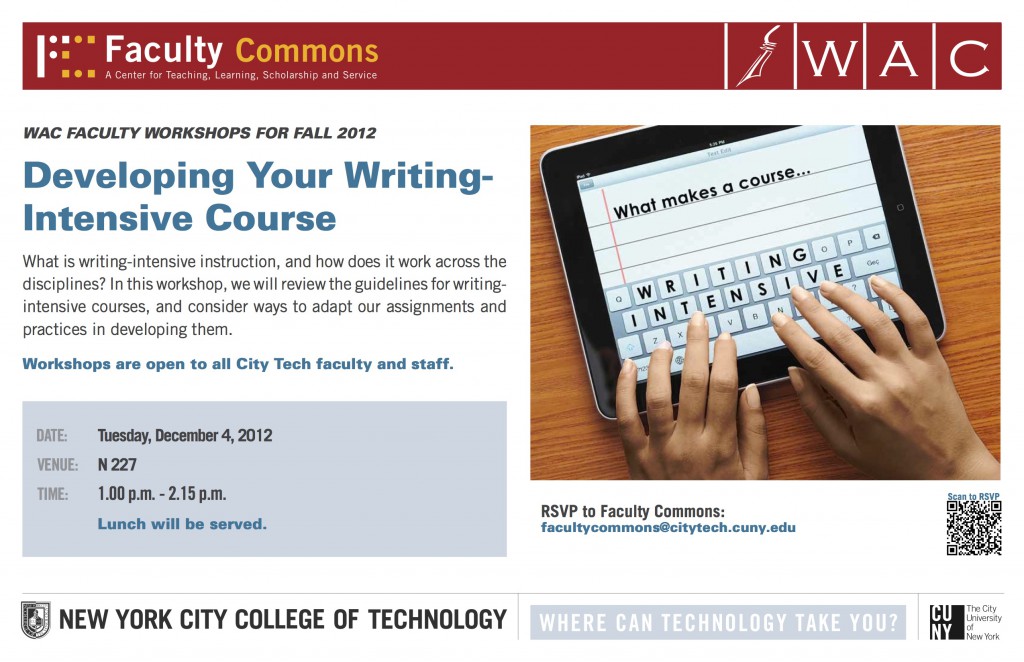When it comes to writing intensive courses, oftentimes, students are not excited to write in the first place. They are either taking a required English course, such as Composition or a writing intensive first-year literature course, or they are writing longer pieces for the first time in the courses of their majors. One of the most frequent errors is not in the students’ abilities in approaching critical analysis or building strong arguments, but in the time they are devoting to developing their writing. In particular, there is the challenge of switching from a writer’s perspective to a reader’s perspective that keeps students from revising their work, in addition to the difficulties that arise with a screen-based format, as opposed to working with a hard copy of their work (Bean 34).
Often, where drafts or first submissions falter is in the structuring of the essay, in that students have not spent enough time on this. Scaffolding activities that encourage spending plenty of time planning in order to give their ideas space to flow better on the page are often helpful for this. Therefore, there is a strong case to be made for devoting more class time to developing each written assignment, and as a result, students are learning the process of developing stronger pieces of writing, the skills for which they can apply across their studies. Given that students do not always delve fully in to the revision process, perhaps only changing a few sentences or grammatical errors pointed out in their feedback, there exists the need to engage and encourage receptiveness to developing and revising their drafts. Additionally, concerning resubmission of work, it is beneficial to include some requirements that accompany the resubmission.
Some suggestions for improving the revision process that have been particularly helpful in my own writing and literature courses are the following[1]:
- Having students come to class prepared with a guiding question for that session’s reading in which to direct the class discussion. This encourages active learning, critical thinking, generative topic discussion, and leads into how they develop their major written assignments through independent planning and groupwork.
- Scaffolding writing assignments to allow for extra writing and revision time, including one-on-one conferences which they attend prepared with an essay plan to discuss, active peer reviews, and writing days to address specific challenges in their individual writing processes.
- Enabling more active participation in peer reviews. Rather than students simply reading through their group’s essays and commenting here and there, it is generative to provide a worksheet that asks them to address specific elements of the work they are critiquing. These sheets are then uploaded to a shared folder that both their instructor and the members of their group can access.
- Implementing a resubmission policy that requires students to attend a writing center appointment to discuss the instructor’s feedback and write a new cover letter that addresses what they have changed about their essays.
Ultimately, the goal of good writing is to develop good thinking, and this is something that we can achieve in teaching thinking through teaching revision. An important idea is that “for expert writers, the actual act of writing causes further discovery, development, and modification of ideas” (Bean 29). It is therefore beneficial to spend even more time planning and revising work during class. In the era of instant gratification and ever-evolving technologies and AI, students are shown to be less inclined to spend enough time on each step of the assignment. There is a lot of value in slowing down and learning and relearning the process.
[1] For more examples, see p. 36 of John C. Bean, Dan Melzer, Engaging Ideas: The Professor’s guide to Integrating Writing, Critical Thinking and Active Learning in the Classroom, third edition, Jossey-bass, 2021.





